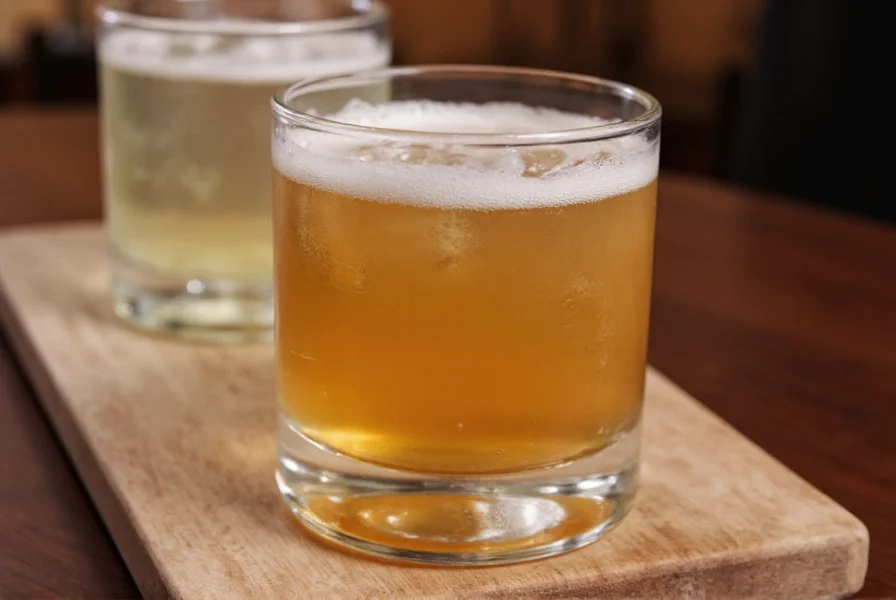Many people reach for ginger ale when experiencing digestive discomfort, believing it to be a natural remedy for acid reflux. This common misconception stems from ginger's historical use in traditional medicine for nausea and digestive issues. However, the relationship between ginger ale and acid reflux is more complex than most realize—and often counterproductive.
Understanding Acid Reflux and Ginger's Role
Acid reflux occurs when stomach acid flows back into the esophagus, causing that familiar burning sensation known as heartburn. While occasional acid reflux affects millions of people, chronic cases may indicate gastroesophageal reflux disease (GERD), which requires medical attention.
Ginger (Zingiber officinale) contains bioactive compounds like gingerols that have demonstrated anti-inflammatory properties and may help accelerate gastric emptying. Some clinical studies suggest pure ginger could potentially reduce nausea and improve digestion. A 2020 review published in Nutrients indicated ginger might help with functional dyspepsia, though specific research on GERD remains limited.

Why Ginger Ale Differs from Pure Ginger
The critical distinction lies between actual ginger and commercial ginger ale. Most mainstream ginger ale brands contain only trace amounts of real ginger (often less than 0.5%), with the distinctive flavor primarily coming from artificial ginger flavoring. What they do contain in abundance:
| Component | Amount in Typical Ginger Ale | Effect on Acid Reflux |
|---|---|---|
| Added Sugar | 30-40g per 12oz serving | Increases stomach acid production; relaxes lower esophageal sphincter |
| Carbonation | High levels of CO2 | Increases stomach pressure; promotes reflux episodes |
| Actual Ginger Content | 0.1-0.5% in most brands | Minimal therapeutic benefit at these concentrations |
| Artificial Flavors | Varies by brand | Potential irritants for sensitive digestive systems |
Scientific Evidence on Ginger Ale and Acid Reflux
Research specifically examining ginger ale's effect on acid reflux is limited, but studies on its components tell a clear story. A 2018 study in the Journal of Neurogastroenterology and Motility found carbonated beverages increased reflux symptoms in 80% of GERD patients compared to still water.
Regarding sugar content, research published in Gut demonstrated that high-sugar diets correlate with increased frequency of acid reflux episodes. The American College of Gastroenterology specifically recommends avoiding carbonated beverages and high-sugar drinks for those managing acid reflux.
Better Ginger Options for Digestive Support
If you're seeking the potential digestive benefits of ginger without the drawbacks of commercial ginger ale, consider these alternatives:
- Fresh ginger tea: Steep 1-2 inches of fresh ginger root in hot water for 10 minutes. This provides actual ginger compounds without sugar or carbonation.
- Ginger supplements: Look for standardized extracts containing 5-10% gingerols (consult your doctor first).
- Fresh ginger chews: Small pieces of crystallized ginger (choose low-sugar varieties).
- Ginger in cooking: Add fresh ginger to stir-fries, soups, or smoothies.

Effective Natural Remedies for Acid Reflux
While searching for solutions to do ginger ale help with acid reflux symptoms, many people overlook more effective natural approaches. Evidence suggests these alternatives may provide better relief:
- Aloe vera juice: A 2010 study in the Journal of Alternative and Complementary Medicine found aloe vera reduced GERD symptoms in 79% of participants.
- Chewing gum: Stimulates saliva production which can neutralize stomach acid (choose sugar-free).
- Slippery elm: Forms a protective coating in the esophagus (consult your doctor about potential medication interactions).
- Lifestyle modifications: Elevating the head of your bed, avoiding late meals, and maintaining a healthy weight.
When Ginger Might Worsen Acid Reflux
Despite ginger's potential benefits, it may not help everyone. Some individuals report ginger actually triggers their reflux symptoms. This paradoxical effect may occur because:
- Ginger can stimulate gastric acid secretion in some people
- Raw ginger's spiciness may irritate sensitive esophageal tissue
- Individual variations in digestive response to ginger compounds
If you experience increased burning or discomfort after consuming ginger in any form, discontinue use and consider alternative remedies for natural remedies for acid reflux that actually work.
When to Seek Medical Attention
While occasional heartburn is common, certain symptoms warrant professional evaluation. Consult a healthcare provider if you experience:
- Heartburn more than twice weekly
- Difficulty swallowing
- Unintentional weight loss
- Nighttime symptoms that disrupt sleep
- Symptoms persisting despite lifestyle changes
Chronic acid reflux can lead to complications like esophagitis or Barrett's esophagus, making proper diagnosis and treatment essential. Never substitute home remedies like ginger ale for professional medical care when dealing with persistent symptoms.
Practical Tips for Managing Acid Reflux
Instead of reaching for ginger ale when heartburn strikes, try these evidence-based approaches:
- Drink a glass of plain water to help clear acid from the esophagus
- Try a teaspoon of baking soda mixed in water (temporary relief only)
- Chew sugar-free gum for 30 minutes after meals
- Avoid lying down for at least 3 hours after eating
- Elevate the head of your bed 6-8 inches
For those specifically wondering can ginger ale make acid reflux worse, the evidence suggests it often does—particularly for frequent sufferers. The carbonation increases intra-abdominal pressure while the sugar content may relax the lower esophageal sphincter, creating perfect conditions for reflux.
Conclusion
While pure ginger shows promise as a digestive aid, commercial ginger ale typically does not help with acid reflux and often worsens symptoms due to its sugar content and carbonation. Those seeking natural approaches to manage heartburn should consider ginger tea or other evidence-based remedies rather than carbonated soft drinks. Always consult with a healthcare provider for persistent acid reflux symptoms, as proper diagnosis and treatment are crucial for preventing complications.
Does ginger ale help with acid reflux symptoms?
No, ginger ale generally does not help with acid reflux symptoms. Most commercial ginger ales contain minimal actual ginger but high amounts of sugar and carbonation, both of which can trigger or worsen acid reflux. While pure ginger has shown some digestive benefits in studies, the formulation of ginger ale counteracts any potential benefits.
Can plain ginger help with acid reflux?
Some evidence suggests plain ginger may help with certain digestive issues, but research specifically on acid reflux is limited. Ginger contains compounds that may accelerate gastric emptying and reduce inflammation. However, ginger can actually trigger reflux in some people. If trying ginger for acid reflux, use fresh ginger tea rather than processed forms, and discontinue if symptoms worsen.
What drinks are better for acid reflux than ginger ale?
Better beverage options for acid reflux include: plain water, aloe vera juice, non-citrus herbal teas (like chamomile or licorice root tea), and almond milk. These options avoid the carbonation and high sugar content of ginger ale that typically worsen reflux symptoms. Ginger tea made from fresh ginger root (without added sugar) may provide potential benefits without the drawbacks of commercial ginger ale.
Why does ginger ale sometimes seem to help heartburn?
The perceived relief from ginger ale may be temporary and misleading. The carbonation might create a burping reflex that temporarily relieves pressure, while the sweet taste provides a distracting sensation. However, the sugar and carbonation ultimately increase stomach acid production and pressure, typically worsening symptoms within 30-60 minutes. This creates a cycle where people consume more ginger ale seeking relief, inadvertently worsening their condition.
What's the difference between ginger ale and ginger beer for acid reflux?
Traditional ginger beer typically contains more actual ginger than commercial ginger ale, but most modern versions still contain high sugar levels and carbonation. While craft ginger beers with higher ginger content might offer slightly more potential benefit, both beverages generally contain problematic elements for acid reflux sufferers. Neither is recommended as a primary treatment for acid reflux, though small amounts of strongly brewed ginger beer with minimal sugar might be less problematic than standard ginger ale.










 浙公网安备
33010002000092号
浙公网安备
33010002000092号 浙B2-20120091-4
浙B2-20120091-4